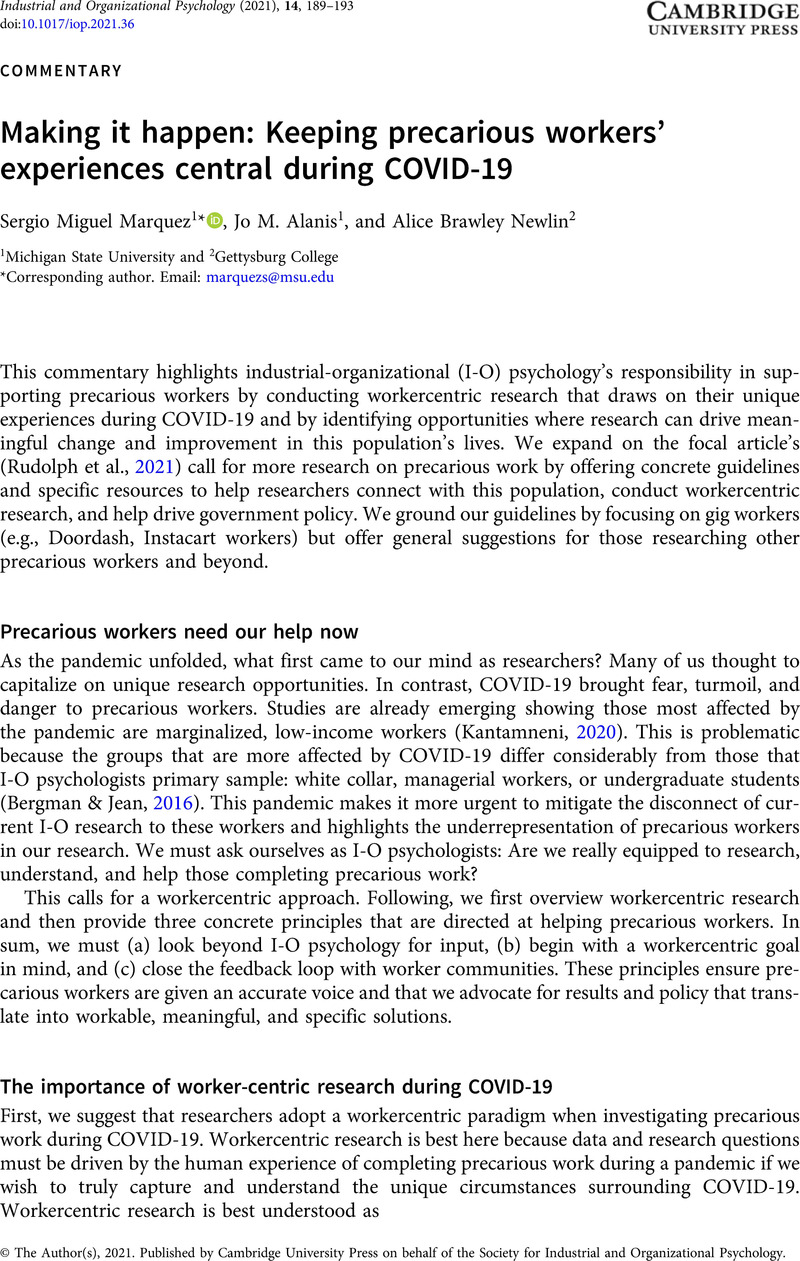Crossref Citations
This article has been cited by the following publications. This list is generated based on data provided by Crossref.
Brawley Newlin, Alice
2024.
Methodological and Demographic Variation in Estimates of Economic Dependence Across Two Types of Gig Work.
Occupational Health Science,
Vol. 8,
Issue. 1,
p.
161.
Brawley Newlin, Alice
2024.
Not all “small business” is the same, and I-O has shoulders to stand on.
Industrial and Organizational Psychology,
Vol. 17,
Issue. 4,
p.
399.
Mirabito, Ann M.
Solnet, David
Cockburn, Bethany S.
Golubovskaya, Maria
Hu, Xinyu (Judy)
McClelland, Laura E.
and
Robinson, Richard N.S.
2025.
Crafting the road to well-being for precarious frontline workers: Explicating the role of jolts and resources.
Journal of Vocational Behavior,
Vol. 157,
Issue. ,
p.
104097.



